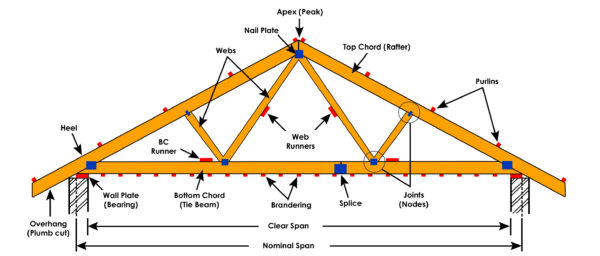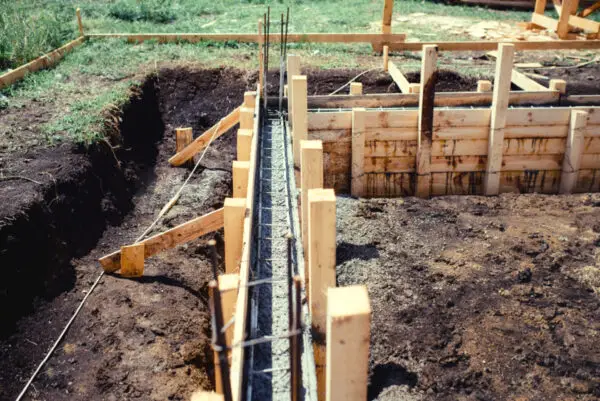Have you ever dreamed of running your own construction contracting company?
Bringing ideas to life by managing impactful building projects takes technical know-how combined with strong business acumen.
If you’re willing to invest the time to gain proper licensing, education and experience, a rewarding career as a residential building contractor awaits.
We’ll clearly cover crucial considerations like:
- Licensing rules in your state, county and city
- College degrees or trades programs to enroll in
- Specialty certifications that look impressive to clients
- Where to get vital hands-on building experience
- How to pass any required contracting exams
- Business, accounting and software skills to master
- Marketing tactics and lead generation with homeowners
- Pricing and bidding best practices
If building luxurious homes or renovating properties sounds more exciting than a typical desk job, read on to map out a custom career game plan for becoming a successful residential contractor.
Let’s explore how to stand out from the competition while staying compliant, safe and profitable.

Steps to Become a Residential Building Contractor
The first step to becoming a residential building contractor is researching the precise trade licensing requirements in your state, county and municipality. Rules vary widely, but often include obtaining a general contractor license, registering your business legal entity and carrying appropriate insurance.
Develop expertise by combining construction-related education with hands-on building experience under other established contractors.
Seek opportunities like internships to learn while also making professional connections. Be prepared to take any required trade exams proving fundamental construction management knowledge.
With licenses and basic qualifications in hand, launch your independent contracting business.

For residential work, focus locally marketing directly to homeowners needing renovations or custom projects. Deliver professional quality workmanship while operating ethically to earn referrals powering future business growth.
Licensing Requirements for General Contractors
General contractor licensing ensures building trades professionals understand regulations and best practices to protect public safety. Though specific credentials differ by jurisdiction, common requirements may include:
- Minimum age, education level and construction experience
- Passing relevant trade exams
- Proof of insurance policies & bonding capacity
- Registering your company with state contractor boards
- Maintaining permits for each project
- Adhering to building codes and labor laws
Check details for your municipality before pursuing contractor work. Getting properly certified demonstrates credibility while allowing bidding on larger, more profitable projects.

What Education Do You Need to Be a Contractor?
While college isn’t strictly required, pursuing an applicable degree demonstrates commitment while providing knowledge to become a skilled construction contractor. Good options include:
Construction Management: Ideal for learning supervision, project planning, budgeting and regulatory compliance aspects of contracting. Engineering: Civil or structural engineering develops key technical foundation for construction methods.
Architecture: Background on building design fused with some structural considerations. Trades Programs: Hands-on training in carpentry, electrical, masonry or plumbing trades.
Aim to gain well-rounded competence in building systems, planning, safety, materials and equipment. This equips you to expertly manage crews with specialized trade expertise.
Best Degrees for Construction Contractors
For would-be building contractors, the following college programs provide an excellent balanced education:
- BS in Construction Management – Blends business fundamentals with key construction principles, tools and documents like plans, contracts and estimating. Practical for contractors.
- BS in Building Science – Strong technical focus on materials, methods and building systems integration knowledge.
- Associates/Bachelor’s in Construction Tech – Hands-on curriculum teaching the actual techniques and assemblies used on residential jobsites.
Couple formal education with summer internships gaining site experience under commercial, industrial and residential contractors to boost competency performing in the field.
Building Contractor Certification Programs
Trade-specific contractor certifications showcase specialized competence to potential clients. Some prominent examples include:
- NARI – National Association of the Remodeling Industry
- NAHB – National Association of Home Builders
- LEED AP – Leadership in Energy and Environmental Design Accredited Professional
- Certified Aging-in-Place Specialist (CAPS) – Accessibility focused education
State or municipal jurisdictions may also sponsor approved contractor training covering codes, permits and licensing suitable for new builders aspiring to perform contracted work legally.
Construction Business Management Training
Running the business operations of a contracting company requires financial, marketing and managerial acumen regardless of technical proficiency. Seek educational opportunities including:
- Small business entrepreneurship seminars
- Contract drafting and negotiation
- QuickBooks software for contractors
- Website and digital marketing strategy
- Optimizing social media and online presence
- Accounting, taxes and insurance guidance
Never stop advancing knowledge both on project worksites and enterprise management aspects for steady construction business growth.
What Experience is Needed to Be a Contractor?
Aspiring contractors should seek well-rounded hands-on experience spanning exposure to:
Carpentry – Framing, trim, finishes
Concrete and Masonry – Foundations, brick, stone, drives
Roofing – Shingles, tiles, flats, slopes
Painting and Wall Finishes MEP Systems – Mechanical, plumbing, electrical
Site and Excavation – Grading drainage, demolition
Work under multiple established contractors or residential builders to gain competence across foundational building trades before venturing out independently.
Aim for at least 2-3 years of direct hands-on site construction experience to become adequately prepared as a contractor bidding customized client projects.
Construction Contractor Exam Study Guides
All states require passing one or more trade-specific examinations to earn licensed contractor credentials. Common standardized tests include:
- NASCLA Accredited Examination for Commercial General Building Contractors
- AGC Contractor licenses testing for Residential/Commercial Builders
- PSI’s National Contractor Trades Exams
- Experior Assessments for Construction Managers
Utilize reputable online courses, test preparation apps, sample exams and specialty publications tailored to your precise license type and jurisdiction to study. Contractor associations and continuing education providers also offer exam focused training.
Set a firm test date then methodically improve knowledge areas with lower scores using practice questions until achieving consistent passing results before sitting for license exams.
How to Get Contractor Leads and Clients
Success launching a new construction contracting business relies on steady client leads translating to commissioned jobs. Effective approaches to get your name out locally include:
- Networking with architects, designers and realtors
- Creating a professional company website and listings
- Utilizing social media and online directory profiles
- Distributing customized flyers for neighborhood marketing
- Attending home shows and industry trade expos
- Asking satisfied customers to leave online reviews and refer friends
Consider lead generation services that prequalify interested prospects with upcoming building projects in your area as an affordable starting point while experience grows.
Building a Profitable Contracting Business
The final step after getting licensed, trained and gaining field experience is building a thriving construction business as a home building contractor concentrating on:
- Specializing in a niche residential market
- Using contract templates to minimize risk
- Employing qualified subcontractors for what you can’t self-perform
- Systematizing quality control and account management protocols
- Optimizing bidding strategies while controlling costs
- Reinvesting profits into the best equipment and professional development
Many successful contractors ultimately shift towards primarily running the business development side as greater project oversight and additional skilled crews facilitate taking on more new clients.
Conclusion
Becoming an accomplished building contractor demands commitment but offers rewarding work environments with great opportunity.
Follow this guide’s steps highlighted in each section above to earn necessary licensing, specialized education, well-rounded field experience and business training tailored to residential builders.
The process requires dedication over time but structures a path for thriving construction company ownership.







